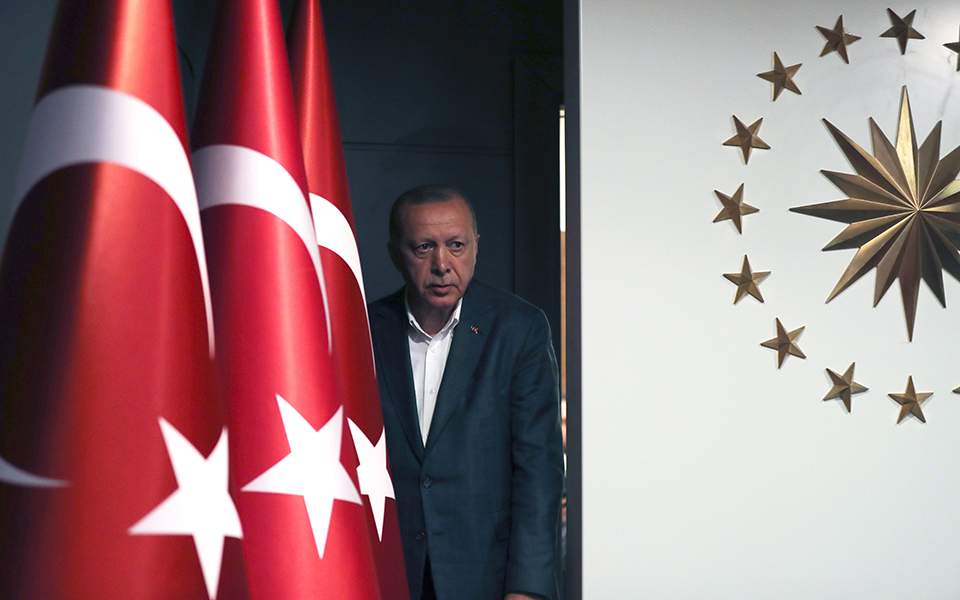Blue Homeland and co-exploitation

Speaking at the end of a Greece-Turkey meeting in March 2013, Turkish President Recep Tayyip Erdogan uttered the phrase “kazan-kazan” (Turkish for win-win), a term used to describe a situation in which each party benefits in some way. Erdogan was once again referring to the prospect of co-exploiting the hydrocarbon reserves in areas within Ankara’s sphere of interest.
The story goes back a long way. In 1975, Turkey proposed the joint exploitation of natural resources on the Aegean continental shelf. The idea was that Greece and Turkey would each exploit the natural resources within their respective territorial waters, in other words within 6 nautical miles from their coast. Outside maritime borders however, the Aegean seabed would constitute a zone of joint exploitation by the two countries. As viewed by Ankara, co-exploitation means splitting the benefits of any gas finds in two. Thereby, although Turkey is only entitled to a small portion of the Aegean continental shelf, it hopes that co-exploitation would enable it to lay claim to up to 50 percent. Co-exploitation would essentially create an area of joint sovereignty between the two countries.
Greece rejected Turkey’s proposals at the time. As mentioned during a session of the Greek Parliament (September 21, 1976), Athens would only accept joint-exploitation under the following conditions: The two countries would first have to delineate the continental shelf in the Aegean. Once this was done, the two sides would negotiate the establishment of a joint-exploitation zone limited to areas where the two continental shelves meet and including sections of both countries. Inside that zone, any finds would be shared on the basis of pre-agreed quotas.
The Greek proposals reflected international norms. The first step always is to demarcate the boundaries of a continental shelf (or of the exclusive economic zone). If finds are subsequently made along the boundary, the solution usually is co-exploitation. Cyprus and Egypt have, for example, signed an agreement for the co-exploitation of potential hydrocarbon deposits on both sides of their EEZ border.
Ankara has in recent months talked up the notion of the Blue Homeland. This refers to a vast area expanding across half of the Eastern Mediterranean. It includes the continental shelves of Cyprus, Rhodes, Kastellorizo, Karpathos, Kassos and the eastern section of Crete. The Turkish proposal constitutes an evolution of Ankara’s Aegean demands in the 1970s. “Let’s co-exploit (or co-manage) this entire area” – this is what Erdogan means by “kazan-kazan.”
What he is effectively saying is that respective claims by Greece and Turkey will allow neither of the two states to develop potential finds. So instead of fighting against each other, the two should share out the benefits in the context of co-exploitation. Both countries, the argument goes, will be better off this way. Of course, should a co-exploitation deal of this sort be in place, there would be no need for delineating the continental shelf. This also explains Turkey’s claims, which are totally absurd and out-of-line in terms of international law. Ankara wants co-exploitation/co-management. The Turkish proposal befits states with compromised sovereignty. Seeing that certain Greek officials appear willing to consider similar proposals, it might be worth taking a fresh look at the conditions set by Greece back in 1976.
Angelos Syrigos is an associate professor of international law and foreign policy at Athens’ Panteion University. He is also a New Democracy MP candidate.





